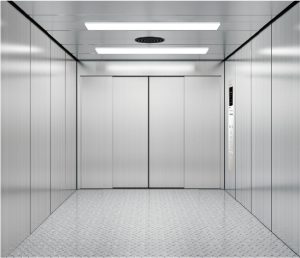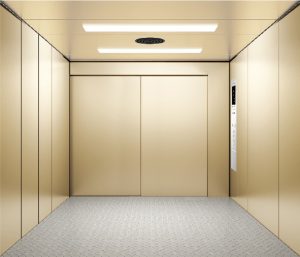Freight Elevator Type: Which Type Do You Need?
Freight elevators are indispensable vertical transportation equipment in modern buildings, designed to handle large volumes of goods and equipment. As a critical tool for vertical transportation, freight elevators enhance work efficiency and revolutionize the way cargo is handled. With the advancement of technology, freight elevators have become more powerful and capable of meeting the diverse needs of various industries. Whether in large factories, logistics centers, or commercial complexes, freight elevators play a crucial role in ensuring the efficient and safe transportation of goods.
There are three main types of freight elevators: machine room freight elevators, machine roomless freight elevators, and hydraulic freight elevators. Below, we explore the characteristics, advantages, and disadvantages of each type to help you make an informed decision when selecting the right freight elevator for your needs.


Freight Elevator Type: Freight Elevator with Machine Room
The freight lift with a machine room is the largest and most commonly used type in the market. As the name suggests, this elevator comes equipped with a dedicated machine room, typically located at the top of the elevator shaft. This room houses key components, such as the traction machine, control cabinet, main power box, and speed limiter. The placement of these components in one location facilitates maintenance and routine inspections, making this type of elevator relatively easy to service.
Advantages:
- Large Load Capacity: These elevators are ideal for heavy-duty cargo transportation.
- Low Noise: They operate quietly, offering a more comfortable working environment.
- Easy Maintenance: The dedicated machine room makes inspections and repairs straightforward.
Disadvantages:
- Space Consumption: The machine room requires additional space, which may limit design flexibility.
- High Construction Cost: The need for extra space and specialized infrastructure increases the overall cost.
- Architectural Restrictions: Certain building designs may not accommodate this type of elevator easily.
Freight Elevator Type: Freight Elevator without Machine Room
Machine roomless freight elevators (MRL) represent a more modern solution that eliminates the traditional machine room. The elevator’s key components, such as the control cabinet and traction machines, are located on the top or side of the well. This design saves valuable space and reduces construction costs, making it particularly suitable for buildings with space constraints or older buildings being renovated.
Advantages:
- Space-Saving: No need for a dedicated machine room, allowing for more flexible architectural designs.
- Cost-Effective: Reduces construction costs and is easier to install.
- Ideal for Renovations: Excellent for retrofitting older buildings that cannot accommodate a traditional machine room.
Disadvantages:
- Higher Noise Levels: MRL elevators can be noisier compared to machine room elevators.
- Lower Comfort: The overall comfort may be reduced due to higher noise and vibration.
- Limited Speed and Capacity: Not suitable for high-speed elevators (more than 1.75 m/s) or very heavy loads.
- Maintenance Challenges: While still serviceable, maintenance may not be as convenient as in a machine room elevator.
Freight Elevator Type: Hydraulic Freight Elevators
Hydraulic freight elevators use a hydraulic drive system to lift and lower the car, unlike the traditional traction-driven method. These elevators are ideal for low-rise buildings or locations where mechanical components for traditional elevators cannot be installed. The hydraulic system offers a simple and effective solution for transporting goods between floors without the need for a machine room.
Advantages:
- Space-Saving: Does not require a machine room, freeing up more usable space.
- Cost-Effective: Generally cheaper to install than traditional freight elevators.
- Simple Installation: The hydraulic system is straightforward to set up and requires less infrastructure.
- No Power Supply Needed: Can operate without a continuous power supply, making them suitable for emergency applications.
Disadvantages:
- Slow Speed: Hydraulic elevators typically have a slower operation speed.
- Limited Height: These elevators are generally only suited for low-rise buildings.
- Maintenance Needs: Hydraulic oil and seals must be regularly replaced to maintain optimal performance.
- Potential Noise: Hydraulic systems can be noisier compared to other types of elevators.
How to Choose the Right Freight Elevator
When choosing the right freight elevator, it is essential to consider factors such as your specific load requirements, building type, and budget. Here are some general guidelines to help you decide:
- Budget and Construction Cost: If you’re working with a limited budget, a machine roomless elevator or hydraulic elevator may be the most cost-effective choice. However, if you need an elevator capable of handling loads over 5000 kg, a machine room elevator is recommended.
- Building Type: For high-rise buildings, machine room elevators are necessary to ensure adequate support and stability. For low-rise buildings, machine roomless or hydraulic elevators may be more suitable.
- Load Capacity: Freight elevators typically come in load capacities ranging from 1 ton to 5 tons. If these standard weights don’t meet your needs, custom solutions are available, but the price may vary.
- Door Design: The elevator door options include side doors, two-fold doors, and three-fold doors. The choice depends on the size and weight of the goods being transported, as well as the frequency of handling.
If you have questions or need assistance in selecting the right freight elevator, consider reaching out to a professional manufacturer like Fuji Elevator. As an experienced elevator manufacturer, Fuji Elevator can provide customized solutions based on your specific requirements, including tailored load capacities, door configurations, and installation scenarios.
Choosing the right freight elevator is critical for ensuring the smooth and efficient transport of goods within your building, so it’s important to select one that matches your needs perfectly. Let our experts guide you through the process and help you find the best elevator for your business.
